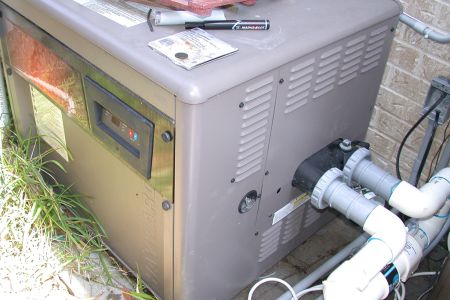Heat Pump Tips For You

Muse Heating And Cooling services all makes and models of heat pumps with 24-hour emergency heat pump repair, but there are some things you can check on to narrow down the problem before you call an HVAC contractor. So let's take a look at the most common heat pump problems HVAC contractors encounter, what causes them, and what action to take.
When your heat pump is acting up, review these Heat Pump Tips for you to determine your next step, or make it simple and call Muse Heating And Cooling.
Heat Pump Won't Power Up
If your heat pump is completely unresponsive and won't turn on at all, there are four possibilities to explore:
- Thermostat-Check to make sure it's displaying correctly and that the buttons are functioning properly. Sometimes a changing of batteries is all that is required.
- Power-Check that the unit is receiving power. Heat pumps use a large amount of power to start up and maintain operation. If the unit pulls too much power at once, the circuit breaker can trip. Check the electrical panel and circuit breaker and reset if tripped. If the breaker continues to trip itself off, there's a larger problem. Contact an HVAC contractor for professional service.
- Capacitor-Listen to closely your heat pump. If you hear a faint clicking noise that occurs as the heat pump is attempting to turn on, your problem is likely with the starter capacitor. This component is responsible for transmitting the electrical charge that turns on the motors. That's also a repair for a professional.
- Reversing Valve- The reversing valve allows the heat pump to work as both a heater and an air conditioner by reversing the refrigerant. If the heat pump turns on when you want cool air, but not for heat, this is likely the cause. It will also need to be replaced by an HVAC contractor.
No Heat Heat Pump
if your heat pump won't blow hot air in response to cold outdoor temperatures, there are three possible causes:
- Outside Blockages-Heat pumps pull heat from the outside air and redirect it back into your home. Airflow to your unit could be blocked by snow, ice, leaves, or other debris, compromising heat pump performance. This can be easily fixed by turning off your heat pump g and clearing away any debris blocking the unit
- Clogged Air Filters-Air filters catch dirt and debris, but when too much builds up, it can block airflow to the compressor, crippling heating efficiency. Regularly check your air filters and change them every few months.
- Low Refrigerant-It sounds strange, but if your refrigerant levels are too low due to a leak, your heat pump will struggle to bring enough heat indoors to properly heat your home. Refilling and recharging the refrigerant level must be done by an EPA-certified HVAC professional.
Heat Pump Not Cool Enough
Similar to heat pump heating problems during cold weather, heat pump cooling failures during the hot months of summer are equally frustrating and are caused by many of the same issues:
- Thermostat-If all settings are correct, then the thermostat isn't reading the indoor temperature correctly or an electrical problem is preventing the device from communicating instructions to the heat pump. You'll need a professional to fix either problem.
- Reversing Valve-System won't switch from heat to cool mode.
- Dirty Components are dirty. Lukewarm air expelling from your vents most likely points to dirty or clogged heat pump components. Remove debris from around the outdoor unit and check to see if your filters need to be replaced.
- Low Refrigerant-As mentioned above, if your refrigerant levels are too low or there's a leak, your heat pump may struggle to cool your home. Routine maintenance is the best preventative measure for identifying refrigerant problems or potential leaks.
Heat Pump Runs Constantly, Can't Keep Up
A heat pump that runs constantly will create spikes in your energy bill and shorten the useful life of the unit. The most common reasons that heat pumps won't shut off include:
- Thermostat-You're settings are too extreme for outdoor temperatures. If the thermostat is set too high or low, the unit will work continuously to try to achieve your desired temperature and never achieve it.
- Dirty Filters-Without a continuous flow of fresh air, your heat pump can't cool or heat your home efficiently. Filters typically need to be replaced every 90 days, but it's smart to check your filters each month.
- Broken Compressor Contractor-The compressor contactor controls the amount of power going to your heat pump. If it's malfunctioning, your heat pump might run all the time. Fixing it will require a professional
Review our Heat Pump Tips for you, or call the heat pump experts at Muse Heating And Cooling at 765-522-4716 and turn over your heat pump maintenance, and worries, to the pros.

Projects

Residential Packaged Unit (Gas Furnace and A/C) Crawfordsville, IN
Muse Heating and Cooling received a call that a resident in the crawfordsville area was having, No HEAT. When arriving, one of our technicians notice the existing unit had a cracked heat exchanger and the unit was over 20 years old. The technician notified the customer […]
See This Project
Recent HVAC Articles
-
Why Water Heaters Die
In general, if a storage-type water heater is over 10 years old, regardless of what the problem may be, most HVAC contractors will likely recommend replacement. Modern storage water heaters typically last around 8 to 10 years depending on the usage, and local water quality, and […]
-
Tankless Water Heaters 101
HVAC contractors that perform water heater repairs are getting used to hearing questions about tankless water heaters and the benefits and drawbacks of replacing your big, bulky storage-style water heater with the more streamlined, targeted tankless water heater. Tankless water heaters instantly heat water as it […]